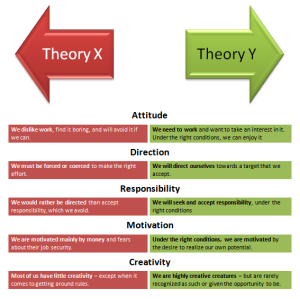 For the most part, I keep my own (fervent) political views out of this blog. There’s a time and a place for such expressions, and I steadfastly silo my social media interactions about my personal beliefs from my professional thoughts. It’s like religion and politics at the dinner table, right? But in the past several weeks, as we’ve watched (and experienced) the government shutdown in “inaction,” and as we’ve observed some of the most pathetic leadership examples on display in our nation’s capital, it’s gotten tough to simply bite my tongue.
For the most part, I keep my own (fervent) political views out of this blog. There’s a time and a place for such expressions, and I steadfastly silo my social media interactions about my personal beliefs from my professional thoughts. It’s like religion and politics at the dinner table, right? But in the past several weeks, as we’ve watched (and experienced) the government shutdown in “inaction,” and as we’ve observed some of the most pathetic leadership examples on display in our nation’s capital, it’s gotten tough to simply bite my tongue.
Oh, I get into it with friends on certain social media sites, debating politics and public policy. And for the most part, agree with me or not, I respect the ideas other have (which does not mean I back down where we disagree, mind you.). In fact, I’ve been blessed with knowing throughout my life many of the brightest minds on both sides of this ideological divide.
But in one recent debate, the political comments bridged the divide between politics and business in a way that pointed out a fundamental dichotomy that seems to divide Americans….and that’s in how we view American workers.
 I’ve built a career around leading and shaping leader around the principles of servant leadership, empowerment, and engaged corporate cultures. All of these are intertwined. Without one, you can’t have the other. I think it’s why I fundamentally question perspectives that view the American worker as lazy, stupid, untrustworthy and unmotivated.
I’ve built a career around leading and shaping leader around the principles of servant leadership, empowerment, and engaged corporate cultures. All of these are intertwined. Without one, you can’t have the other. I think it’s why I fundamentally question perspectives that view the American worker as lazy, stupid, untrustworthy and unmotivated.
Mind you, this isn’t merely an academic perspective I hold. From leading small-team reconnaissance missions as an infantry scout in the early 1990s to overseeing departments of over 300 corporate employees, I’ve lived leadership. And while I’ve tried all kinds of approaches in all sorts of leadership environments, I’ve always returned to the perspective I articulated above. Workers (at all levels, regardless of education or experience) are inherently good and eager to succeed, if as leaders we are able to give them that opportunity.
Over the past decade, I’ve increasingly turned from being in formal leadership roles to influencing the leadership of others. My coaching has grown increasingly effective not by encouraging hierarchical, autocratic, lead-centered leadership. Why? Because it isn’t leadership. That’s merely management…and for one’s employees, it sucks. It’s uninspiring, distrustful, and focused more on building the wallets of company owners and executives than in building communal success that balances financial gains with gains of the soul of the organization. Trust me, the latter leads to more sustained and impressive long-term benefits than the former.
 Where American employees are consistently told they are the source of problems, their benefits are increasingly unjustified, and they watch as executive pay far outpaces their own increases (in many cases, even where operational profits lag), they will become steadily more disengaged and unproductive, it’s true. But when the leadership response is to point to dispositional factors instead of the underlying situational contributors, leaders have lost their way. Dispositional responses nearly always point to one’s own fears and inability to take accountability for leadership. And that’s as applicable to corporate America as it is to politics. As long as we resist admitting that we’re all in this together (as organizations OR as a nation), which means each side taking responsibility to their own negative “work” habits and being willing to give something up, we’ll be permanently lost. It’s simply got to stop!
Where American employees are consistently told they are the source of problems, their benefits are increasingly unjustified, and they watch as executive pay far outpaces their own increases (in many cases, even where operational profits lag), they will become steadily more disengaged and unproductive, it’s true. But when the leadership response is to point to dispositional factors instead of the underlying situational contributors, leaders have lost their way. Dispositional responses nearly always point to one’s own fears and inability to take accountability for leadership. And that’s as applicable to corporate America as it is to politics. As long as we resist admitting that we’re all in this together (as organizations OR as a nation), which means each side taking responsibility to their own negative “work” habits and being willing to give something up, we’ll be permanently lost. It’s simply got to stop!
Sometimes I sound very down on American workers (and sometimes, in truth, I am). But you are correct, people are as good as we let them be, and often it’s not very good at all, and where the system has beat them up for months/years for advancing their knowledge/skills/initiative; why wouldn’t they have learned to get by in that environment.
It happens far too much. Your prescription is much (at least) of the answer, as to how we implement it, I’m pretty much at a loss. But yelling at each other is not getting the job done.
Thanks for a good thought producing post.